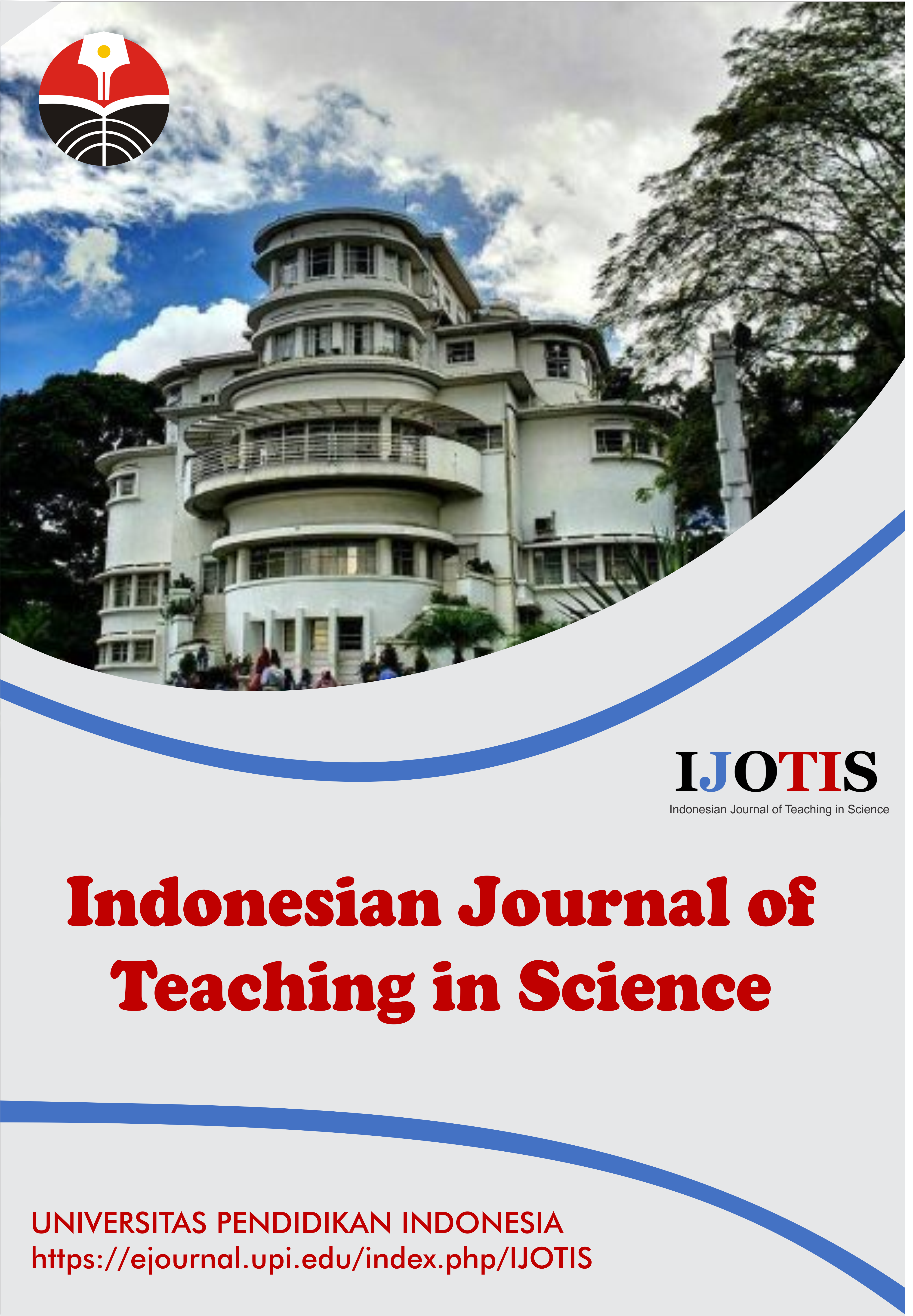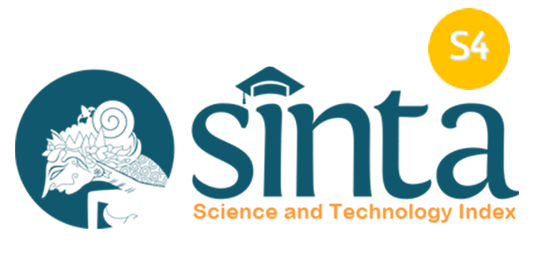Science Process Skills Test Instruments in The New Indonesian Curriculum (Merdeka): Physics Subject in Renewable Energy Topic
Abstract
Keywords
Full Text:
PDFReferences
Adi, N. R. M., Amaruddin, H., Adi, H. M. M., and A'yun, I. L. Q. (2022). Validity and reliability analysis using the rasch model to measure the quality of mathematics test items of vocational high schools. Journal of Research and Educational Research Evaluation, 11(2), 103-113.
Ayre, C., and Scally, A. J. (2014). Critical values for Lawshe’s content validity ratio: revisiting the original methods of calculation. Measurement and evaluation in counseling and development, 47(1), 79-86.
Demirbaş, A. (2006). Global renewable energy resources. Energy sources, 28(8), 779-792.
Elvan, İ. N. C. E., Güven, E., and Aydoğdu, M. (2010). Effect of problem solving method on science process skills and academic achievement. Journal of Turkish Science Education, 7(4), 13-25.
Idris, N., Talib, O., and Razali, F. (2022). Strategies in mastering science process skills in science experiments: A systematic literature review. Jurnal Pendidikan IPA Indonesia, 11(1), 155-170.
Jorgenson, S. N., Stephens, J. C., and White, B. (2019). Environmental education in transition: A critical review of recent research on climate change and energy education. The Journal of Environmental Education, 50(3), 160-171.
Kandpal, T. C., and Broman, L. (2014). Renewable energy education: A global status review. Renewable and Sustainable Energy Reviews, 34, 300-324.
Karamustafaoğlu, S. (2011). Improving the science process skills ability of science student teachers using I diagrams. International Journal of Physics and Chemistry Education, 3(1), 26-38.
Laliyo, L. A. R., Sumintono, B., and Panigoro, C. (2022). Measuring changes in hydrolysis concept of students taught by inquiry model: Stacking and racking analysis techniques in Rasch model. Heliyon, 8(3), e09126, 1-10.
Lewis, N. S. (2007). Toward cost-effective solar energy use. Science, 315(5813), 798-801.
Moya, D., Aldás, C., and Kaparaju, P. (2018). Geothermal energy: Power plant technology and direct heat applications. Renewable and Sustainable Energy Reviews, 94, 889-901.
Nowotny, J., Dodson, J., Fiechter, S., Gür, T. M., Kennedy, B., Macyk, W., and Rahman, K. A. (2018). Towards global sustainability: Education on environmentally clean energy technologies. Renewable and Sustainable Energy Reviews, 81, 2541-2551.
Nozik, A. J. (1978). Photoelectrochemistry: Applications to solar energy conversion. Annual Review of Physical Chemistry, 29(1), 189-222.
Nurulia, E. (2021). Science process skills in learning physics: Is there an influence on learning outcomes?. Sang Pencerah: Jurnal Ilmiah Universitas Muhammadiyah Buton, 7(1), 24-32.
Panwar, N. L., Kaushik, S. C., and Kothari, S. (2011). Role of renewable energy sources in environmental protection: A review. Renewable and Sustainable Energy Reviews, 15(3), 1513-1524.
Perera, C. J., Sumintono, B., and Jiang, N. (2018). The psychometric validation of the principal practices questionnaire based on item response theory. International Online Journal of Educational Leadership, 2(1), 21-38.
Prayitno, B. A., Corebima, D., Susilo, H., Zubaidah, S., and Ramli, M. (2017). Closing the science process skills gap between students with high and low level academic achievement. Journal of Baltic Science Education, 16(2), 266-277.
Srirangan, K., Akawi, L., Moo-Young, M., and Chou, C. P. (2012). Towards sustainable production of clean energy carriers from biomass resources. Applied energy, 100, 172-186.
Wilson, F. R., Pan, W., and Schumsky, D. A. (2012). Recalculation of the critical values for Lawshe’s content validity ratio. Measurement and Evaluation in Counseling and Development, 45(3), 197-210.
DOI: https://doi.org/10.17509/ijotis.v3i2.60112
Refbacks
- There are currently no refbacks.
Copyright (c) 2023 Universitas Pendidikan Indonesia

This work is licensed under a Creative Commons Attribution-ShareAlike 4.0 International License.
Indonesian Journal of Teaching in Science (IJoTIS) is published by Universitas Pendidikan Indonesia (UPI)
 Indonesian Journal of Teaching in Science
Indonesian Journal of Teaching in Science



